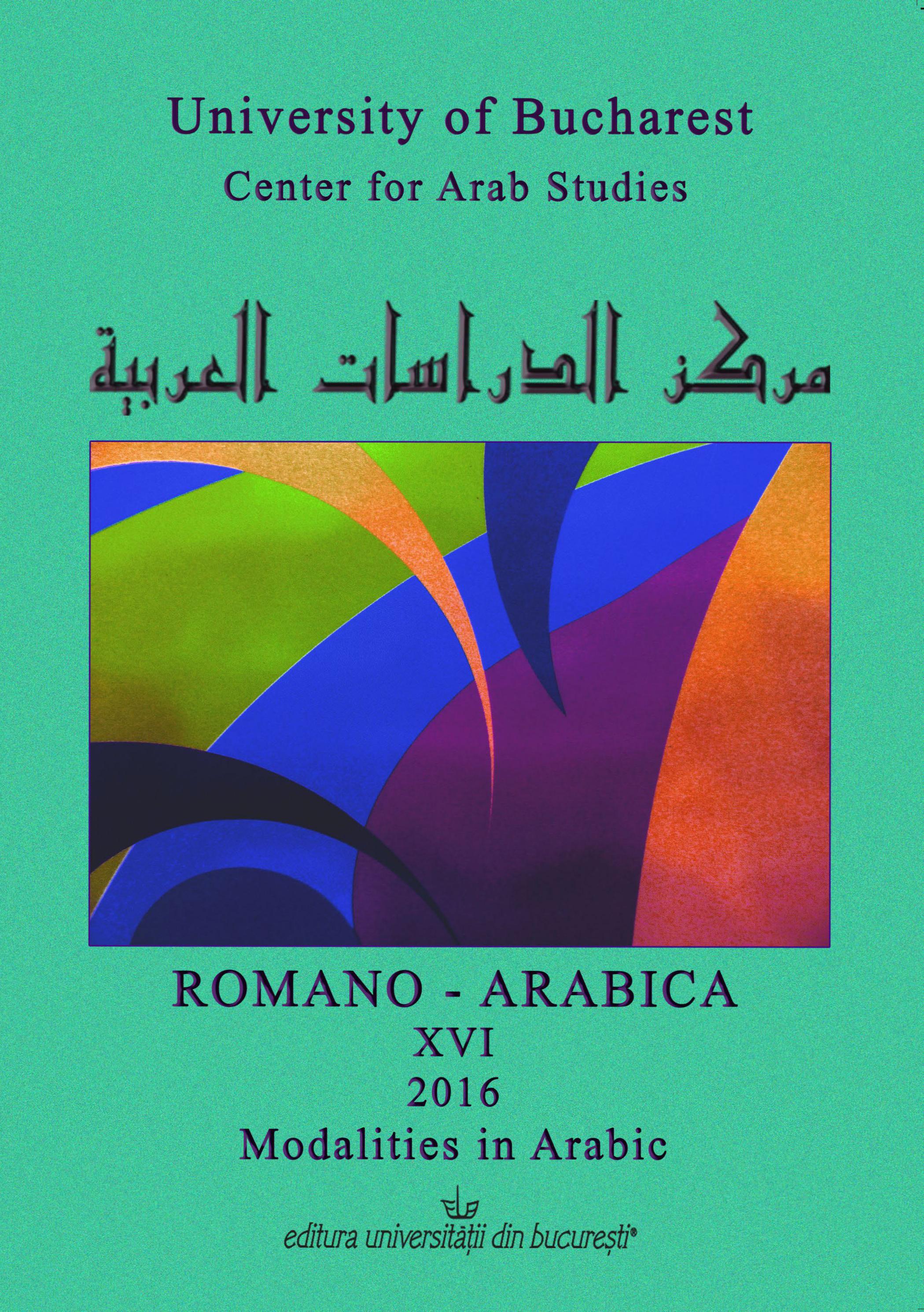LĀ BUDDA : DESCRIPTION SYSTÉMIQUE ET CRITÈRES SYNTAXIQUES DE DÉTERMINATION DES VALEURS DE MODALITÉ DU 'DEVOIR' EN ARABE ÉCRIT CONTEMPORAIN
LĀ BUDDA: SYSTEMIC DESCRIPTION AND SYNTAXIC CRITERIA FOR DETERMINING THE MODALITY VALUES OF 'HAVE TO' IN CONTEMPORARY WRITTEN ARABIC
Author(s): Manuel SartoriSubject(s): Language studies, Theoretical Linguistics, Epistemology, Language acquisition
Published by: Editura Universităţii din Bucureşti
Keywords: modality; modus; dictum; de dicto; de re; necessity of being; necessity of making be; alethic; deontic; epistemic; devoir; lā budda; didactics;
Summary/Abstract: Among other expressions indicating the obligation is the existential clause lā budda in Arabic. Literally “no way out [to]”, it is often translated into French by “nulle échappatoire [à] (it is necessary [that])” or by the verb devoir, and in English by a verb like have to or by a modal operator like must. In French, devoir traditionally belongs at least to two distinct types of linguistic modalities, the latter being understood in a broad sense as the attitude of the speaker relatively to the propositional content of his statement, and in a restricted and Aristotelian sense as what lies within the realm of possibility and necessity and their negations as to the status of truth of the stated thing. The two types of modality which devoir expresses are traditionally distinguished between radical (also said deontic) and epistemic, to what some authors add the alethic modality. This article aims, within the framework of linguistic modalities in the narrow sense and from a linguistics both contrastive (confronting on one hand that of Arabic and on the other mainly that of French but also that of English) and empirical (based on a written corpus of contemporary written Arabic, journalistic and literary), to show how lā budda expresses what French linguistics designates, within the epistemic modality, as the logical probability. More precisely, this article linguistically assesses the conditions of employment of this existential clause in the sense of alethic, epistemic or deontic devoir. It will then be shown that, compared to French or English, Arabic seems to allow more simply, on syntactical bases, to distinguish deontic and epistemic uses of lā budda as well as some of its alethic uses.
Journal: Romano-Arabica
- Issue Year: XVI/2016
- Issue No: 16
- Page Range: 93-124
- Page Count: 32
- Language: French

